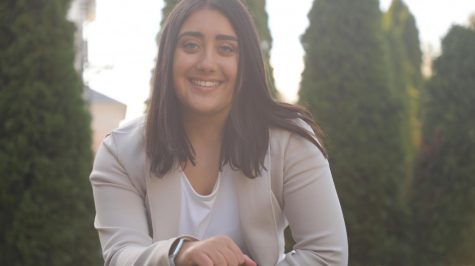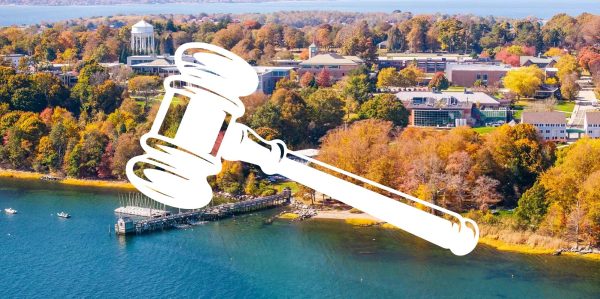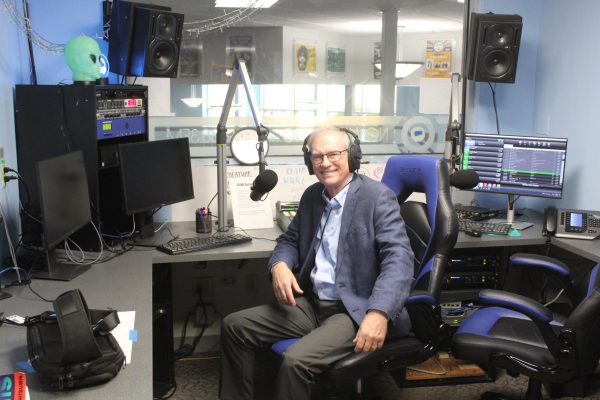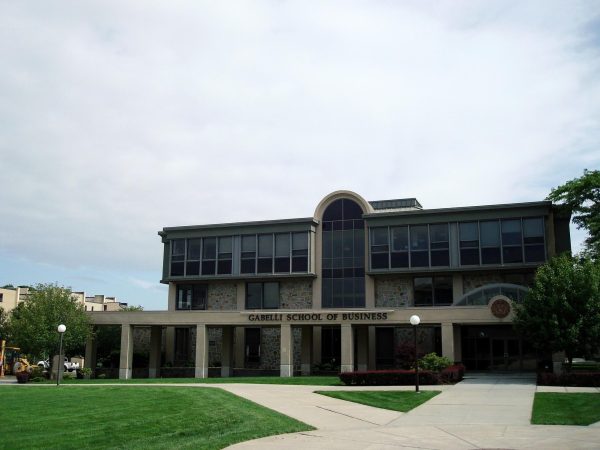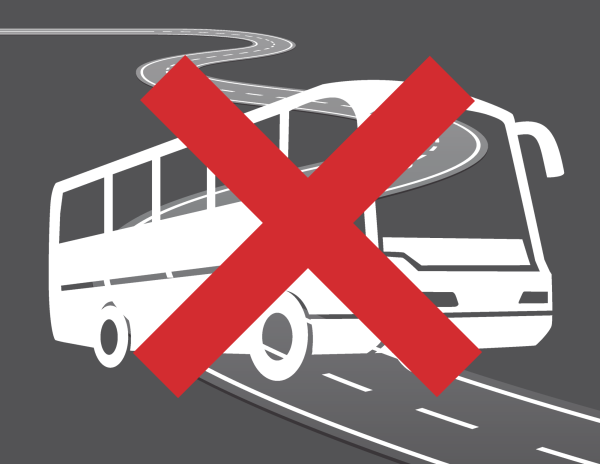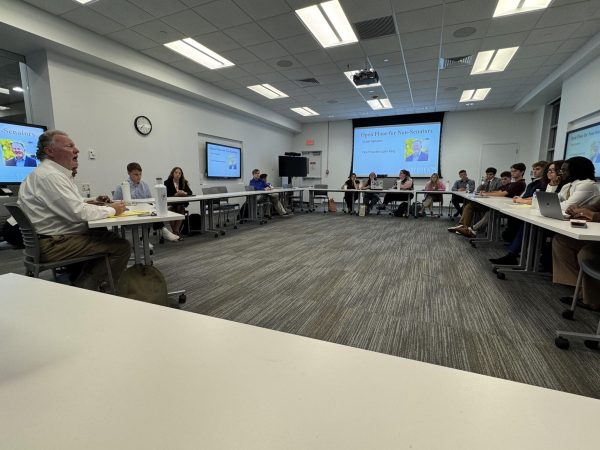A rewarding yet unordinary year: President Miaoulis discusses school’s response to COVID-19, future goals
The first year as a president of a university usually brings various rewards and challenges. After starting officially at RWU last August, President Ioannis Miaoulis got to see that firsthand. But rarely does something happen that is completely unexpected and out of the ordinary. For him and the entire campus community, that came in the form of major disruptions due to COVID-19.
“When the school was first hit by this situation, we were in a crisis mode, so we had to move very fast. But the faculty was terrific at converting courses online and doing it well,” Miaoulis said.
Unfortunately, this crisis did not only spur the major change of moving class instruction online. It also brought along financial struggles, with the university taking a financial hit of close to $12 million. Much of this was due to student refunds, which were issued to residential students after campus closed down. According to Miaoulis, about 20% of employees were furloughed and every other faculty or staff member took a personal salary cut. He said members of campus came together, with agreement from unions and other faculty members alike, as they all worked to solve the issues at hand.
“It’s not like we had this box of money that now all of a sudden we have, and that’s why we had to make cuts,” he said.
Miaoulis said federal aid will be helpful as well. RWU is receiving $2.6 million from the CARES Act. $1.3 million of that will be used to offset the cost of closing down for the semester. The rest will be distributed directly to students, including those who are facing financial hardship or others who could not continue on-campus jobs. Those funds have to be distributed within a year, but Miaoulis said it’s unlikely all of them will be given out by June, so some will have to spill into next semester.
Though the university received this aid, along with returned student refunds from some families, it is likely that this crisis will have lingering economic impacts.
“In the unlikely scenario that we have 100% of the students return and we have a full freshman class, we’re going to be good. We’re going to have no other impacts,” Miaoulis said.
But that scenario isn’t completely likely and remains dependent on how many students do decide to return. Miaoulis added that residence halls are full for the upcoming semester and said the university is still filling the freshman class, since the decision deadline was moved to June 1. If the first-year class does not fill and the gap isn’t covered, further cuts will have to be made depending on the magnitude of the deficits. But Miaoulis said the university is more organized in planning out these options for the future because there is more time to do so.
One of the biggest adjustments made by students and faculty in universities across the nation was the switch to online learning. Miaoulis said come fall, the university may have to teach in a “hybrid way,” with potential scenarios like having some students go to classes one day and the next they do classes online. He is fairly certain there will still be an online component even if students are back on campus, but he said online activities are being assessed to see how instructional design and faculty workshops can be improved.
One promise directly tied to Miaoulis throughout this time was that of being committed to holding an in-person commencement ceremony, no matter how long it takes to be able to do so. There were plans in the works to have a postponed ceremony in August, but Miaoulis announced on May 7 that this would not be an option anymore. Safety is the university’s number one priority, so administration members are working to plan a commencement ceremony for May 2021, which could be back-to-back with the ceremony for that year’s graduating class. If it is technically possible, he also hopes to hold a few days of mini reunion for the class of 2020, possibly holding events like their commencement ball, to truly commemorate their time together.
“It’s not only the ceremony, this senior class lost the final semester with each other. It’s more than the ceremony… People didn’t get to say goodbye, and a lot of these friendships will last forever,” Miaoulis said.
Despite the major shift this year, Miaoulis was able to accomplish multiple goals, though he hopes to improve on those even more in the years to come. There was an increase in strategy planning, although the process has since shifted from planning for the next five to 10 years to planning for fall 2020. He aimed to improve the culture of philanthropy, which he made progress on as well, by successfully getting the board to increase their giving and raising more money for certain funds.
There is one aspect of campus life President Miaoulis got to engage in but certainly didn’t get enough of: meeting with faculty and students. Although he sits in on multiple online meetings each day, nothing can replace going out to lunch with colleagues or discussing something with them face to face. He is excited to do that again.
After watching everyone come together during a time like this, he is reassured that the students, faculty and staff have the passion needed to carry the university forward.
“I think we have a terrific team. That makes me feel pretty confident that after this crisis goes, we are going to keep building a fantastic university.”

